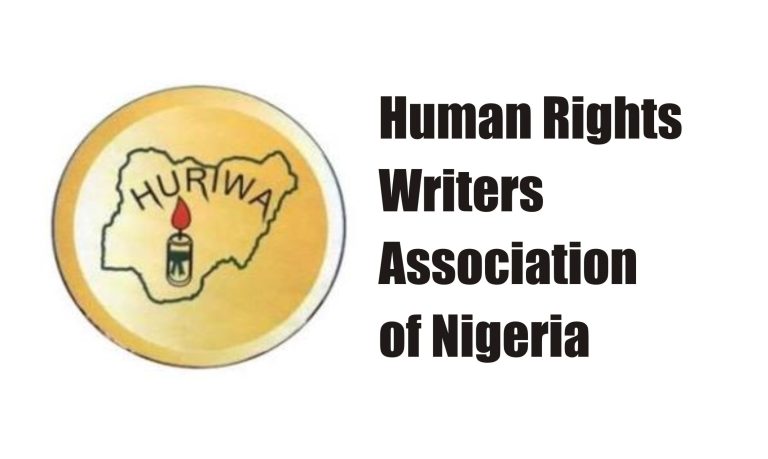The Human Rights Writers Association of Nigeria, HURIWA, has expressed concern over the recent violent clash between members of the Islamic Movement of Nigeria, IMN, known as Shi’ites, and the Nigeria Police Force in the Wuse district of the Federal Capital Territory (FCT).
HURIWA criticized the confrontation, which occurred on Sunday, as it reportedly resulted in the deaths of two police officers, left several others injured, and led to the destruction of police vehicles.
While condemning the killing of the police officers, HURIWA emphasized the importance of upholding the rule of law and ensuring that those responsible for the crime are apprehended, prosecuted and punished to deter future occurrences.
In a statement issued on behalf of the organization, HURIWA’s National Coordinator, Comrade Emmanuel Onwubiko, called for a thorough investigation into the incident. He stressed that the actions of those involved in the attack on the police are not only reprehensible but must be met with the full weight of the law.
“The clash has sparked controversy, with conflicting accounts from both the police and the Islamic Movement of Nigeria. According to the FCT Police Command, the attack on its personnel was unprovoked, with the Shi’ite group allegedly wielding machetes, improvised explosive devices, and other weapons during the confrontation. The police report indicated that the attackers set three police patrol vehicles ablaze and left three officers unconscious in the hospital.
“In contrast, the IMN, through a statement signed by Sheikh Sidi Munir Mainasara Sokoto, denied responsibility for the violence, claiming that the police attacked their Arbaeen Symbolic Trek, a religious procession, and killed several mourners. The IMN maintained that their procession was peaceful and had been successfully conducted in other locations without incident,” HURIWA recounted.
In its statement, HURIWA warned the Nigeria Police Force against actions that could lead to the emergence of another extremist group similar to Boko Haram.
HURIWA recalled how Boko Haram, originally a non-violent group, evolved into a deadly insurgency after the extrajudicial killing of its founder, Mohammed Yusuf, by the Police.
The group cautioned that the continued extrajudicial killings and persecution of Shi’ite members by the Police and other security agencies could push the group to take up arms in self-defense, which would have devastating consequences for national security.
HURIWA highlighted that the Nigerian government, through its security agencies, has a history of mishandling situations involving non-state actors.
The association underlined that the extrajudicial killing of the original founder of Boko Haram after his arrest by the military and subsequent handover to the Police was a pivotal moment that led to the radicalization of the group. HURIWA urged the government to learn from this tragic history and avoid repeating the same mistakes with the IMN.
The rights association called on the Nigerian Government to adopt a more diplomatic approach in handling the Shi’ite group, urging for dialogue rather than violent confrontation.
It suggested that the government could direct the IMN to conduct its religious processions in enclosed spaces, such as stadiums, to prevent disruptions to public order while allowing them to exercise their religious rights.
The rights group further urged the Police and military to exercise restraint and adhere to the rules of engagement when dealing with Shi’ite processions, emphasizing that even if members of the group are suspected of committing capital offenses, they must be subjected to due process and not extrajudicial killings.
It condemned the repeated killings of Shi’ite members by security forces, noting that such actions not only violate their right to life but also risk provoking further violence.
HURIWA’s statement also highlighted the danger of pushing the Shi’ite group into a corner where they might resort to violence as a means of self-preservation.
The organization warned that Nigeria, already grappling with multiple insurgencies and armed non-state actors, cannot afford the emergence of another armed group. HURIWA stressed that it is crucial for the Nigerian government to address the grievances of the Shi’ite community and prevent the situation from escalating into a full-blown conflict.
“The government must urgently address the underlying issues driving the conflict with the Shi’ite group and seek peaceful solutions that respect the rights of all citizens,” HURIWA added.
